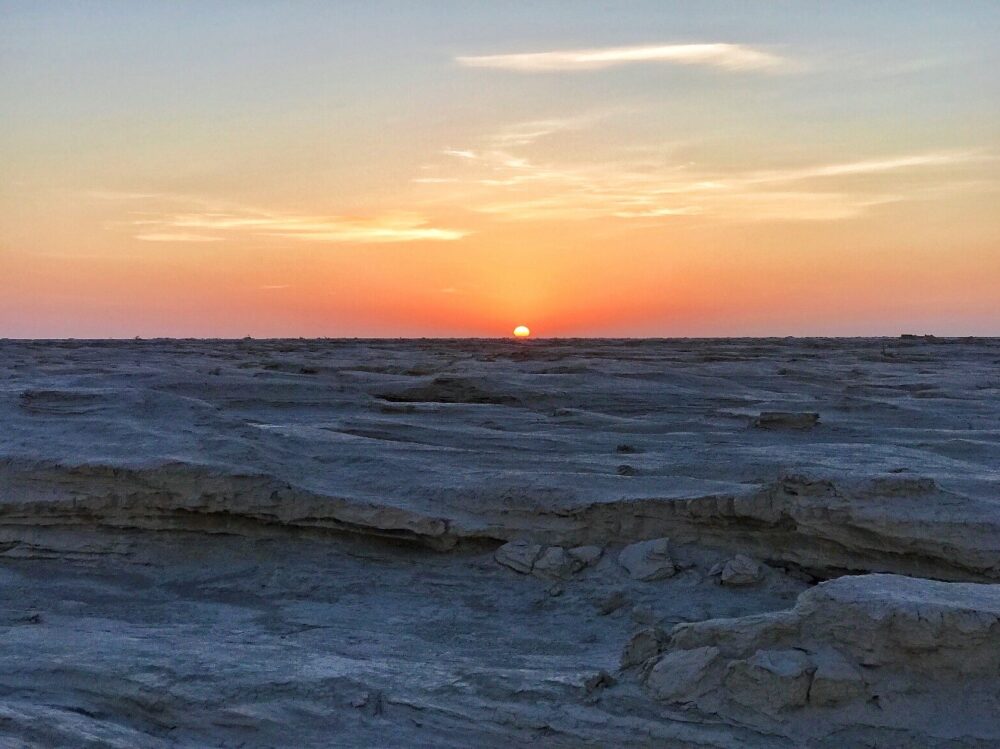Two Executive MBA (Chinese) alumni spent 10 days instead of the planned six days, navigating through the tough terrains of Xinjiang’s Lop Nor. With the original route of 3,500KM, it stretched to become over 5,000KM with multiple backtracking that resulted in almost twice the amount of time taken to complete the crossing of the desert. We speak to Zhang Runbin and Liu Wuli who recount their experience driving across this infamous “no man’s land”. Both had previously completed the Gobi Desert Challenge together and love the great outdoors.
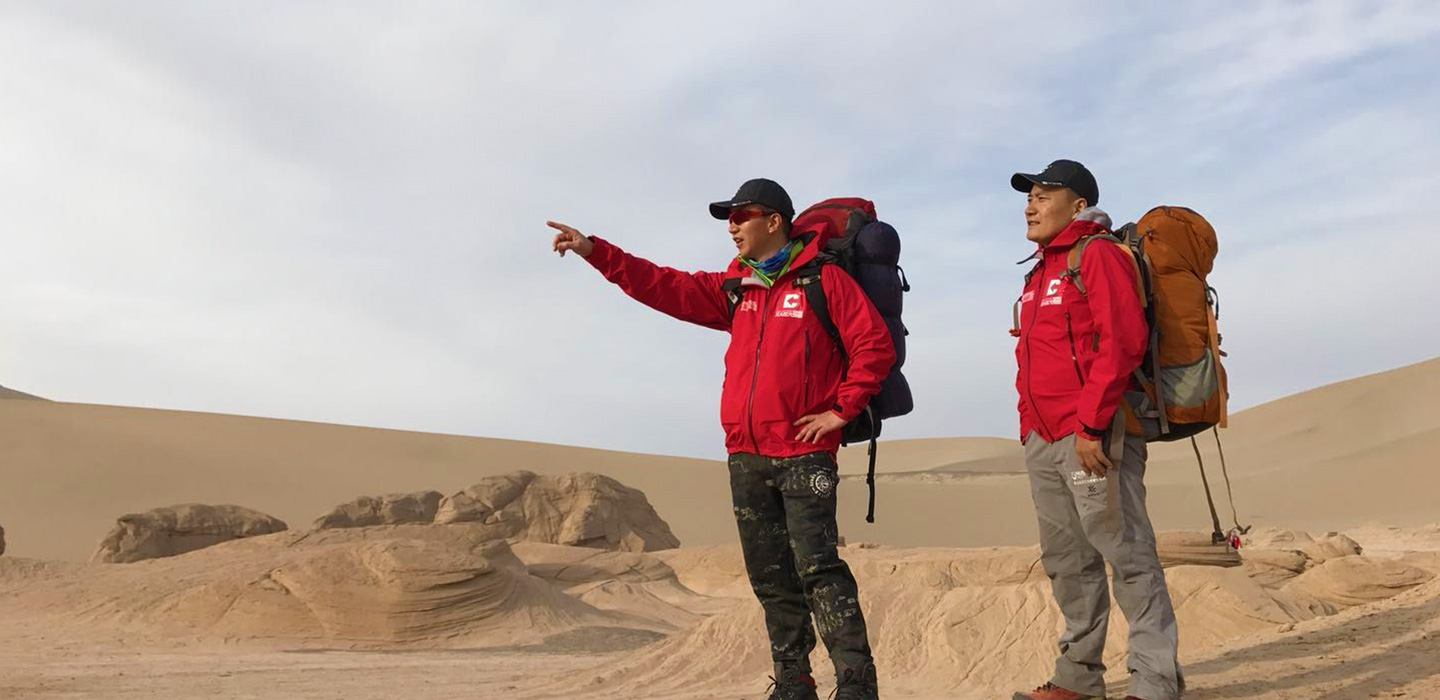
EMBA alumni conquering Lop Nor desert in 10 days
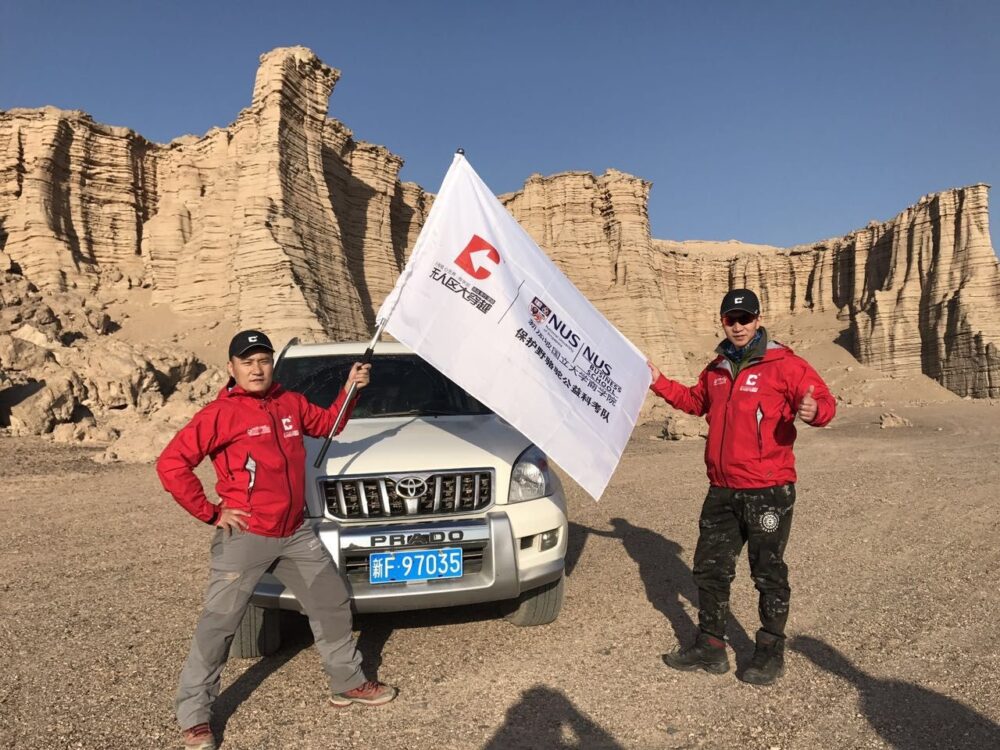
Lop Nor’s total area is almost equivalent to Zhejiang’s province, and is nicknamed “the sea of death” as it is a piece of land where there is nothing but endless deserts, rocks and sand. Due to its location, it was previously the pilot launch site of China’s first atomic bomb.
With a total of 28 participants who were previous EMBA alumni across various business schools, they set off in 15 all-terrain vehicles accompanied with desert experts for this adventure. Their journey saw them navigating through sandstorms blind, with only basic walkie-talkies and satellite phones, sleeping in minus three degree cold weather either in tents or in the cars, where drinking warm tomato and egg soups and sharing a piece of naan was considered comfort food.
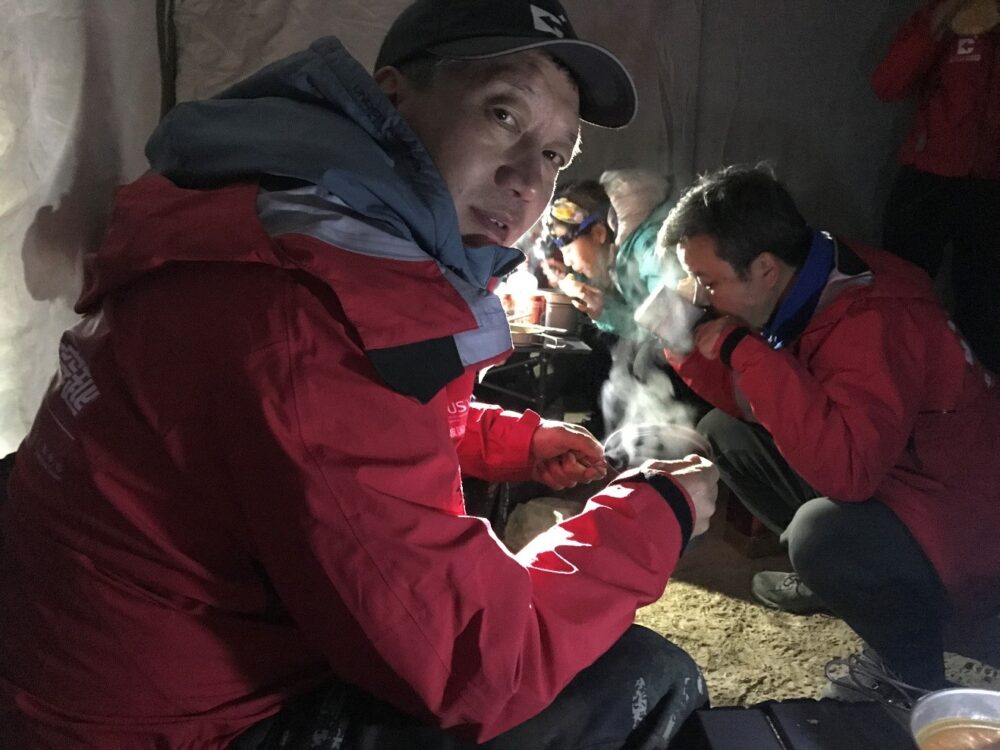
Q: Can you share the most memorable moments during your journey to cross Lop Nor?
Zhang Runbin: Lots of things have happened through out the journey and we met a lot of obstacles – a level nine sandstorm, cars being stuck in the road, having to backtrack or change routes, etc. At the end of the journey, almost more than a third of the participants dropped out. I’m heartened my team persevered despite the immense tiredness and frustration throughout. It also helped that we were representing NUS Business School, so that really fuelled us as well.
Liu Wuli: Runbin really stepped up during the journey – leading us, and making clear decisions especially during critical times. He was our “captain” motivating us, literally steering the wheel of our vehicle and mediating the teams when frustration arose.
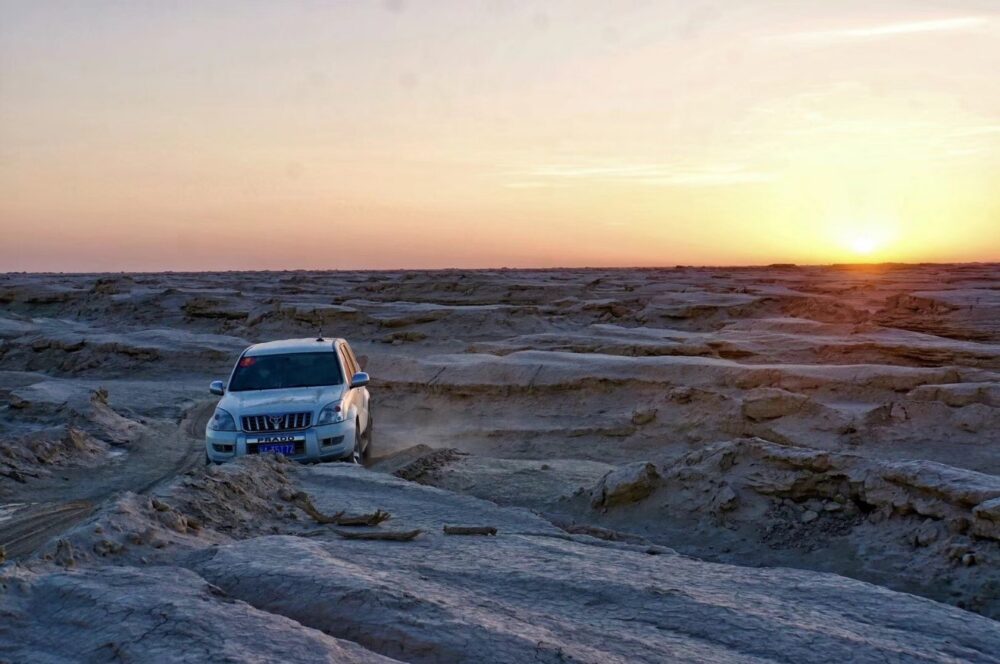
Q; We understand the journey was gruelling to say the least. What stood out as the most physical or psychological challenge for you?
Zhang Runbin: The entire journey to and fro, we had to go through exceptionally complicated road conditions. Driving eight to 10 hours a day on bumpy roads across different landscapes like sand ridges, salt marshes, huge pits, steep slopes of almost 70 degrees. It was very common for us to get lost or stuck and experience car breakdowns. It’s quite stressful to be a driver as you have to maintain your team’s safety, or concentrate hard on the road, especially if you’re stuck in a pit. Having completed the Gobi Desert Challenge three times, and participating in over 50 marathons before, I actually felt more mental pressure and exhaustion than physical challenges.
Liu Wuli: This event is not like running a marathon or taking part in the Gobi Desert Challenge which test an individual’s limits. Instead, this was definitely a test on teamwork and keeping each other’s morale high when all you see are obstacles ahead of you.
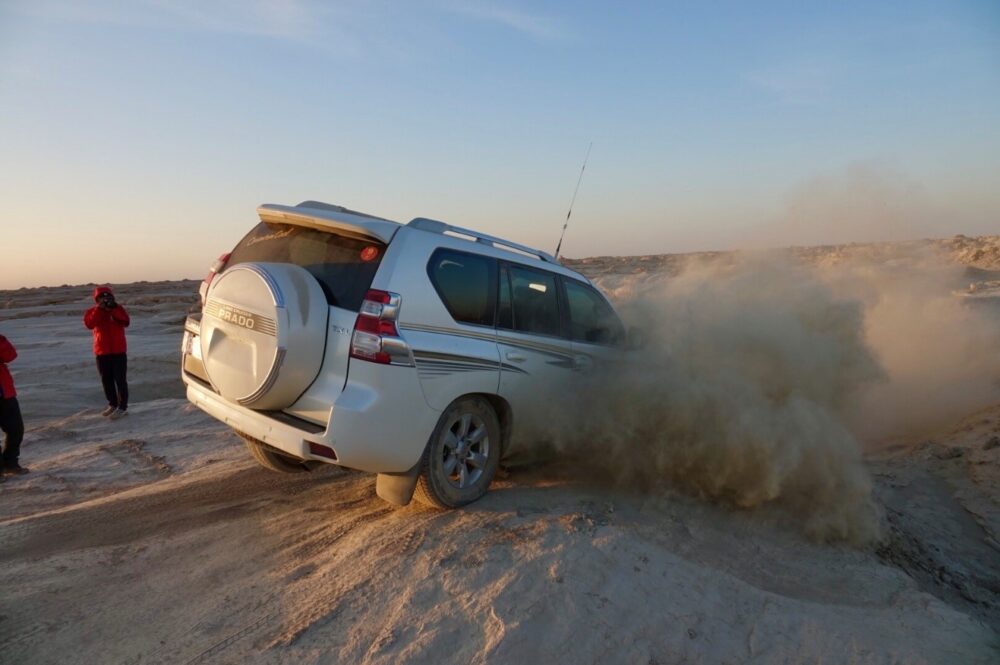
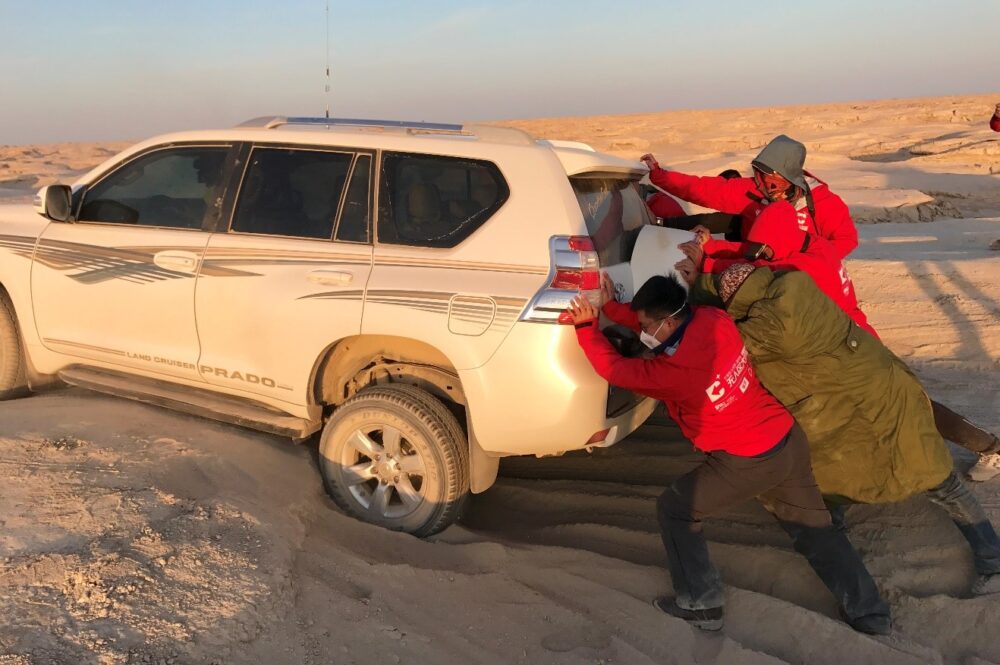
Q: How do you think going through such challenges will benefit business school students?
Zhang Runbin: The trip felt like I was running a new start-up, from observing people’s behaviours and attitudes when facing difficulties, to how a whole organisation functions. Crossing Lop Nor can be treated as a good business management case study – doing business is gruelling and there is no secret formula. You need to remain focused and persistent if you want to succeed.
Liu Wuli: There is the importance of communication, collaboration and co-ordination between teams. The cause and effect of different people or team are critical. Whether it is in a sport, or managing a business, or running a project, if your team lacks effective and patient communication with weak decision-making capabilities, you run the risk of failing.
Zhang Runbin: You can be very passionate about something, but you also must act responsibly. Don’t sacrifice for no reason, or take unnecessary risk. But you must also trust your own instincts, and if it doesn’t work out, you can always try again. Everyone needs to go on an adventure some time to unwind, and possibly find your own creativity or rejuvenate your passion for whatever you’re interested in.
